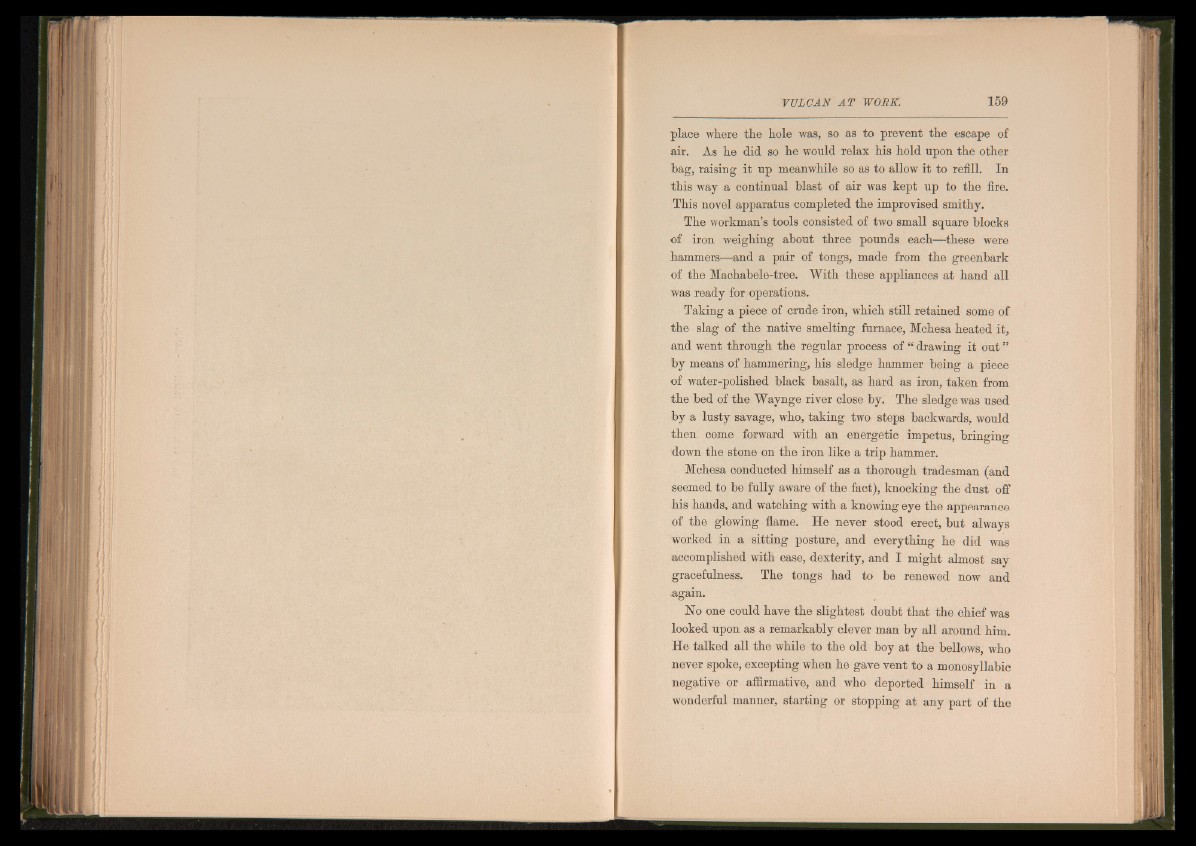
VULCAN A T WOBK. 159
place where the hole was, so as to prevent the escape of
air. As he did so he would relax his hold upon the other
bag, raising it up meanwhile so as to allow it to refill. In
this way a continual blast of air was kept up to the fire.
This novel apparatus completed the improvised smithy.
The workman’s tools consisted of two small square blocks
of iron weighing about three pounds each—these were
hammers—and a pair of tongs, made from the greenbark
of the Machabele-tree. With these appliances at hand all
was ready for operations.
Taking a piece of crude iron, which still retained some of
the slag of the native smelting furnace, Mchesa heated it,
and went through the regular process of “ drawing it out ”
by means of hammering, his sledge hammer being a piece
of water-polished black basalt, as hard as iron, taken from
the bed of the Wavnge river close by. The sledge was used
by a lusty savage, who, taking two steps backwards, would
then come forward with an energetic impetus, bringing
down the stone on the iron like a trip hammer.
Mchesa conducted himself as a thorough tradesman (and
seemed to be fully aware of the fact), knocking the dust off
his hands, and watching with a knowing eye the appearance
of the glowing flame. He never stood erect, but always
worked in a sitting posture, and everything he did was
accomplished with ease, dexterity, and I might almost say
gracefulness. The tongs had to be renewed now and
again.
No one could have the slightest doubt that the chief was
looked upon as a remarkably clever man by all around him.
He talked all the while to the old boy at the bellows, who
never spoke, excepting when he gave vent to a monosyllabic
negative or affirmative, and who deported himself in a
wonderful manner, starting or stopping at any part of the